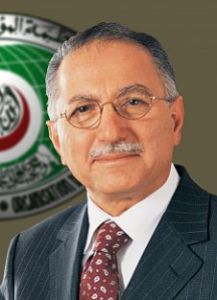Erdogan isn’t necessary for the peace process
Who would I vote for in the second round? I am not a Turkish citizen so I have no right to vote in the presidential elections, but even if you pressed me, I couldn’t answer this question. A religious man who speaks of democracy but doesn’t put it into practice? Or a religious man put forward by two parties that represent everything that is wrong with the foundations of Turkey? Neither of them my cup of tea, as they can’t be the cup of tea of anybody who wishes Turkey to become a real democracy. To think that the candidate I would vote for in the first round and the movement he represents, Demirtas, would support either Erdogan or Ihsanoglu, is ridiculous.
Correspondents flood to Diyarbakir these days to write about the Kurds and the presidential elections. What surprises me is that often there is no distinction made between the people and the movement. In general, the message of many articles is: if Erdogan doesn’t get more than 50% of the votes in the first round, then ‘the Kurds’ will support Erdogan and thus help him reign after all in the second round.
‘The Kurds’? Many of them will even vote for Erdogan in the first round, for a wide variety of reasons: some because the AKP is religious, some because Erdogan said ‘Kurdistan’ last year in the Diyarbakir rally, some because he said ‘Wan Münit’ years ago in Davos, some because they appreciate the changes that the AKP rule has brought over the last ten years, certainly to the Kurdish issue, including less violence and a better economical situation.
I always find it funny, by the way, how people sometimes angrily tell me that ‘the HDP doesn’t represent all the Kurds!’ True. But I always wonder what people mean by that. That AKP-voting Kurds don’t want rights? That AKP-voting Kurds aren’t entitled to their rights? Possibly not. I think they mean that in their eyes it makes the struggle of the Kurdish movement less legitimate. But it doesn’t.
Unconditional and for everybody
What the HDP wants is respect for human rights. And human rights, as laid down in many international treaties to which Turkey is also (but not always) party, are unconditional and for everybody. You don’t have to vote HDP first before you have the right to education in your mother tongue. You don’t have to vote HDP to have the right to free speech and not get locked up for what you say or write. You don’t have to vote HDP to be part of a nation and as such have the right to self determination. AKP voters have those rights too, like MHP and CHP voters, and non-voters. Being a human being is enough. Fighting for that is legitimate regardless of how many people support it.

HDP candidate Selahattin Demirtas (left) during a press conference with foreign correspondents, 9 July 2014
Forgive me the aside, now back to the presidential elections. While some of the Kurds will vote for Erdogan even in the first round, another large part of the Kurdish vote will go to Selahattin Demirtas. And yes, a part those Demirtas voters will vote for Erdogan if a second round is necessary. Some for the reasons mentioned before, others because there is no alternative, since the kemalism and fascism that CHP/MHP candidate Ihsanoglu represents just have no place in Kurdish areas.
But these are all personal choices. They should not be confused with the choice of the Kurdish movement. The movement put Demirtas forward, and that’s their choice. There is no way they will either support Erdogan or Ihsanoglu in the second round. Several Kurdish politicians, among them Ahmet Türk, have also explicitly stated that.
More arrogant
That many people still think that the Kurdish movement would support Erdogan in the second round is a misconception of the still ongoing peace process. The wrong analyses are based on the perception that the Kurdish movement needs a strong Erdogan for the peace process to proceed. They don’t. A strong Erdogan is not necessarily good for the peace process. It could be and he could push through changes that are good for democracy and thus for the peace process, but it could be quite the opposite too. Being strong could make him more arrogant and disregard democracy even more than he already does.
A weak Erdogan isn’t necessarily good for the peace process either. He may in that case give in to Kurds a bit more to attract Kurdish voters for next year’s parliamentary elections, but he could also ‘fear the nationalist vote’ more and continue to not make real progress in the peace process.
Anyway, the misconception of the Kurdish movement needing a strong Erdogan, is again based on an even bigger misconception, which is that Erdogan started the peace process. Erdogan’s public start of the ‘Kurdish opening’ in 2009 and the initially secret Oslo talks, and subsequently the start of the mutual ceasefire in early 2013, were a reaction to the peace process that the Kurdish movement started in the nineties. The Kurdish movement deals with whoever is in power. Now it’s Erdogan, in the future it will be somebody else, like in the past. They fight their own struggle, for everybody, until the goal is reached. They need nobody but themselves to be strong.


Enjoyed reading; thanks. Indeed, human rights are for everybody.
” The Kurdish movement deals with whoever is in power. ” They will deal with CHP? MHP? Funny . . .